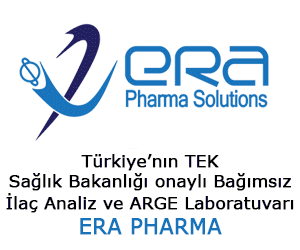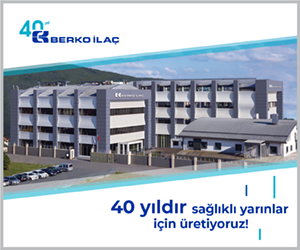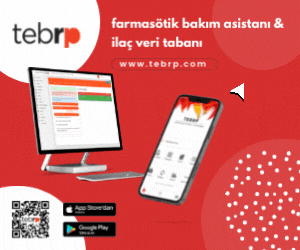Geleneksel pazarlama-tanıtım (promotion) kampanyalarının dönemi yavaş yavaş sona eriyor, ancak Türkiye’deki sıkı pazarlama-tanıtım kısıtlamalarına rağmen ilaç firmaları yasal olarak dijital pazarlamaya nasıl katılabilir-yararlanabilir ?
Pharmaceutical Companies Face Digital Marketing Issues
The era of traditional marketing campaigns is slowly coming to an end, but with one of the tightest marketing restrictions in Turkey, how can pharmaceutical companies lawfully engage in digital marketing?
DIGITAL display advertising using text, images, flash, video, and audio is increasingly popular as the average time spent per adult user per day increases each year, however, Turkey prohibits advertising human medicinal products to the general public. As a result, digital marketing in the Turkish pharmaceutical sector is not evolving at the same pace or in the same direction as it is in other countries where company contact with patients is not prohibited. Under Turkey’s strict prohibition on pharmaceutical advertising, how can pharmaceutical companies benefit from the digital marketing tools in Turkey?
As the main regulator of the pharmaceutical sector, the Ministry of Health deals with the pharmaceutical sector through its independent Pharmaceutical Product and Medical Device Institution (“Pharma Institution”). The Pharma Institution oversees all aspects of pharmaceuticals including production, pricing, import/export, clinical trials, and marketing authorization, which is regulated under the Pharmaceuticals and Pharmaceutical Preparations Code [1] and the Regulation of Promotional Activities of Medicinal Products for Human Use (“Pharma Regulation”),[2] along with certain related legislation.
Article 5 of the Pharma Regulation prohibits all forms of advertising that are accessible to the public, which would suggest that it is unlawful to advertise pharmaceutical products through digital displays on websites that are accessible to the general public. That said, it would theoretically be possible to advertise via digital displays on websites that were only accessible to healthcare professionals. But how could such access be controlled and monitored?
The primary question that springs to mind is whether conventional “tick-the-box” solutions could be applied to control access to websites and platforms dedicated to healthcare professional. Would it be sufficient for a pharmaceutical company to design a website where pop-ups appear when a user clicks on a tab enabling access to healthcare professional dedicated content? What should be the content of such pop-ups, can the company simply include a warning emphasizing that the content in the following page may only be viewed by healthcare professionals, or should users have to tick a box to confirm that they are healthcare professionals and would this guarantee that the pharmaceutical company was in compliance with the requirements of Turkish pharma marketing rules?
Unfortunately, in such cases the burden of preventing access by non-healthcare professionals would still be on the pharmaceutical companies or their service providers. Therefore, tick-the-box solutions when applied as a stand-alone precaution will not satisfy the requirements of law. Websites that are wholly or partly dedicated to healthcare professionals should maintain a strict access policy by implementing an account system. The healthcare professionals wishing to enter the website should be required to create an account. Healthcare professionals could be asked to submit certain documents (e.g. diploma, identity card) to the website in order to ensure that only healthcare professionals are signing up to the website. This system may also work vice-versa. Pharmaceutical companies may create accounts for healthcare professionals for whom they hold relevant data in accordance with personal data protection laws applicable in Turkey,[3] and they may share the created account information with these healthcare professionals to enable their access to the relevant online platforms. Otherwise it would be very hard to prove that the pharmaceutical company has done its part in preventing the dissemination of healthcare professional dedicated information to general public.
A much safer route for pharmaceutical companies may be to create an authentication system by sending text messages to healthcare professionals containing temporary entrance codes that would enable entry to the website. This system would be preferable for pharmaceutical companies with websites including sensitive information dedicated to healthcare professionals because it would allow the companies to make sure that only the designated healthcare professional is entering the website instead of someone who has obtained the login credentials of that healthcare professional. Applying such a secured access system may be difficult for the pharmaceutical companies to implement and it may also have a deterrent effect on healthcare professionals who are seeking access to pharmaceutical product related promotional pages.
There should also be some way of not rendering usage of online platforms impossible in the pharmaceutical sector, including clear warnings addressed to healthcare professionals. Healthcare professional could be warned that the account information may only be used by him or herself, and that any action on the contrary could expose the healthcare professional to liability. Pharmaceutical companies should also provide such warnings in an easily noticeable format such as using big fonts, underlining, or making such parts bold so that a reader of the relevant warning can notice it easily. Pharmaceutical companies could then evaluate the content of the healthcare professional information while designing such websites or digital platforms. For example, package inserts (PI) or summary of product characteristics (SmPC), which are prepared to be included in product boxes and conveyed to patients, should not be interpreted to fall within this category, and therefore access to them by the public should not be restricted.
Where even granting access to a website that includes product-related information may become a problematic issue as discussed above, questions arise as to the usage of other developed digital marketing techniques in pharmaceutical product promotions. Is it possible to use the abovementioned admission or account system in order to grant healthcare professionals access to a digital platform for healthcare professionals where they can discuss treatment options or their experiences prescribing pharmaceutical products to their patients?
Although these methods are not recognized directly under the Pharma Regulation, it is clear that the Pharma Institution should also adapt to the technological developments and authorize unconventional promotional techniques if they want to encourage healthcare professionals to share their experiences, which would also develop the quality of treatment received by patients as long as regulations are not breached or abused. Creation of such digital platforms by the pharmaceutical companies themselves would clearly prove more advantageous than platforms developed by third parties, because it is the product manufacturer who has the most complete and accurate data on a product and may supply useful materials such as scientific sources, clinical research results, moderate the discussions, and prevent any misguidance. This would contribute to an environment of mutual learning and development for everyone involved. If the pharmaceutical industry in Turkey invests in digital platforms and cooperates with healthcare professionals, and the Pharma Institution gains their trust in these new promotion techniques, it is clear that positive outcomes can be achieved and every player can benefit from these.
Via digital marketing, it would also be possible to make use of the network’s built-in data analytics tools that enable pharmaceutical companies to track the progress, success, and engagement of marketing campaigns. Patients would benefit from an increase in the quality of treatment by way of information sharing between healthcare professionals, and the Pharma Institution would benefit by contributing to public health and enabling new methods to be implemented in the healthcare industry.
On the other hand, pharmaceutical companies should be careful not to breach the laws while developing new strategies and techniques, because applying generally recognized digital marketing logic in the pharma sector may give rise to unwanted consequences. For example if digital platforms created for healthcare professionals are used as a way of increasing the prescription of products by using indirect means such as offering of incentives in the form of points earned for giving comments or for the sharing of information on usage of a product on patients, then the creator of such a platform would be breaching the laws. These techniques should be carefully implemented following thorough legal evaluation so that the bridge of trust that has been built between the Pharma Institution and the healthcare professionals is not demolished.
As per the Pharma Regulation, marketing activities can only be targeted to healthcare professionals via promotional materials, medical symposiums or promotional meetings, or visits of sales representatives. Promotional materials are considered to include souvenirs, books and brochures regarding medicines, digital storage devices that contain medicine-related audiovisuals, publications that can be used as a scientific sources, access codes for electronic scientific sources, and free product samples and demos. The value of these promotional materials cannot exceed 2.5% of the Turkish gross monthly minimum wage.[4]
Here again it is possible to load many pages worth of audiovisuals on digital storage devices like USB drives or grant access to digital platforms where scientific sources are shared, or pharma companies may combine conventional advertising with new techniques. For example, using QR codes referring to other related webpages on hard-copy brochures may be an option. In such a way, access to scientific data will be simplified for healthcare professionals. Digital platforms may offer access to a great deal of scientific data by way of a click and thanks to research options, healthcare professionals may reach the information that they are looking for in an easier and more effective manner. This will also contribute to avoiding time loss which can be dedicated to treating patients. In this setting, digital sources would be used by the pharmaceutical companies as a way of promotion as allowed under the Pharma Regulation and again everyone would benefit from the outcome.
Another aspect of digital marketing implementation in Turkish pharma sector should definitely include scientific meetings or symposiums. By hosting online medical symposiums and granting live access to the healthcare professionals, pharmaceutical companies may substantially decrease their costs and reach out to more healthcare professionals; they may also transfer their budget allocated for such organization of such meetings to other areas.
As can be seen, market players and the Pharma Institution would both benefit from the implementation of these new digital marketing methods. Therefore, it is in their best interest to try updating the current regulatory framework in line with these latest digital trends in order to increase the coverage of these digital marketing methods. Naturally there are certain legal risks, and as always, pharmaceutical companies would be wise to contact legal counsel before embarking on any new marketing program.




















